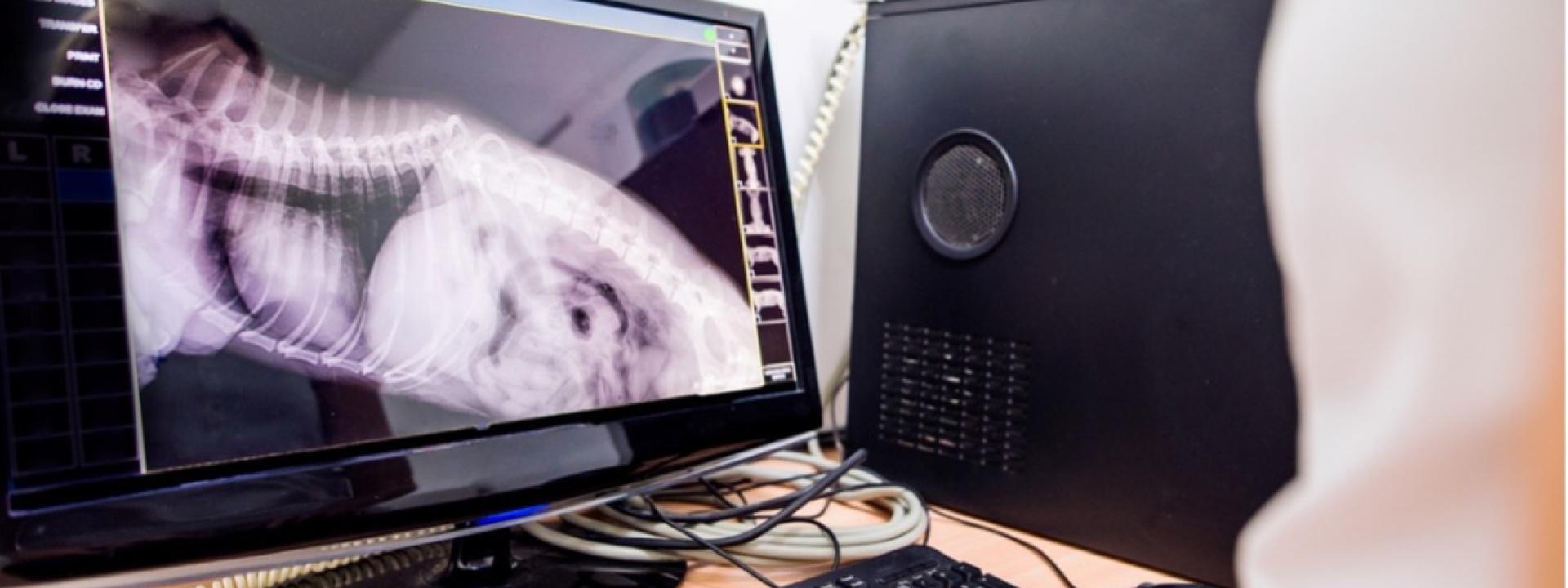Like humans, pets can experience various health issues requiring proper diagnosis and treatment. Pet diagnostics is essential for veterinarians to understand your pet's health and detect potential problems early on. From blood tests to imaging, learn more about the importance of pet diagnostics and how they can help keep your furry friend healthy.
1. Physical Exam
Physical examinations are an essential diagnostic tool to help a veterinarian determine the current health status of your pet. During a physical exam, our doctors look for signs of underlying disease such as rapid breathing, hydration levels, dental disease, heart murmurs, masses in the abdomen, and abnormalities related to the skin or coat such as infection or tumors. Regular physical exams can help us identify potentially serious problems and implement a treatment plan before they become too advanced.
2. Bloodwork
A blood chemistry profile, including electrolytes, provides information about your pet’s liver, kidneys, and pancreas as well as other functions of the body, such as blood sugar and hydration. A complete blood count (CBC) can identify infection, inflammation, and anemia.
Pre-anesthetic Bloodwork
Pre-anesthetic screening reduces risk and increases the quality of care by identifying pre-existing medical conditions and potential difficulties that could arise while a pet is under anesthesia.
Bloodwork before surgery also gives the doctor a chance to adjust their typical drug protocol for sedation and anesthesia to a combination of different medications that are safer for your specific cat or dog. Every drug has possible side effects, and we want the best outcome for you and your pet.
3. Urine Tests
Urine tests are another common type of diagnostic test used for pets. They can provide valuable information about your pet's kidney and bladder health, including infections, crystals, screen for diabetes, or other abnormalities. A urine sample is collected from your pet and analyzed in a laboratory.
4. Diagnostic Imaging
Diagnostic imaging allows our veterinarians to diagnose illnesses, diseases, and other problems to prescribe the proper treatment. We use X-rays to evaluate a pet's bone structure, heart, lungs, abdominal organs, and reproductive and urinary systems. We can identify broken bones or foreign bodies through X-rays and diagnose some cancers or tumors.
5. Fecal Testing
Intestinal parasites can live in your pet's gastrointestinal tract. Since we cannot usually detect them visually, the only way to detect the presence of most intestinal parasites and identify them is by doing a fecal test. Parasites are common in puppies and kittens, but the incidence or intestinal parasites has been on the rise for years. Pets who visit the dog park or go to doggie daycare and boarding are at higher risk for intestinal parasites.
6. Heartworm Testing
Our blog, Heartworm Prevention, explains what heartworm is, how we treat it, and how to prevent your pet from getting heartworms. If we suspect your pet has heartworm disease, we will suggest a heartworm test. The test requires just a tiny blood sample from your pet, and it works by detecting the presence of heartworm proteins. If your pet tests positive, we may recommend further tests. We recommend annual testing for heartworms as the longer it is left undetected the more damage is done to the heart and the opportunities to treat and have a full recovery decrease. The heartworm test we use also screens for several tick-borne diseases including Lyme disease. Even though your pets should be on year round heartworm prevention, no preventive is 100% and we do see pets that contract heartworms even though they have been on preventives.
7. Allergy Testing
Veterinarians use allergy tests to identify and diagnose allergies that may affect your pet. The tests are either skin or blood tests and can help us determine what potential allergens trigger a reaction in your pet. Common allergens include dust, pollen, molds, and insect stings. Treatments may include medications like anti-inflammatories or immunotherapy shots. Allergy testing can also help identify environmental allergens you can remove from your home.
Advanced Pet Care Clinic In-House Laboratory
Our in-house laboratory allows us to perform various routine diagnostics. These diagnostics include but are not limited to, urinalysis, internal parasite screenings, ear cytology, complete blood counts, serum chemistry profiles, and fine needle aspirations. Our in-house laboratory testing services mean faster and more accurate diagnostics and treatment for your pet.
Routine Diagnostics
When you bring your pet in for a checkup, the doctor may recommend specific tests or treatments if your pet is experiencing any symptoms and to ensure your pet is in the best possible health. Some tests, such as heartworm tests, are performed yearly to ensure your pet is disease free. Yearly blood tests may become necessary as a pet ages. Catching problems early before they become severe will help reduce the total expense of owning and caring for your pet and help your pet to have a long and happy life.
Emergency Diagnostics
In an emergency, our priority is to stabilize your pet as much as possible, whether we need to administer CPR, fluids, pain medication, etc., to lessen the severity of the emergency. Once we have stabilized your pet as much as possible, we may need to perform diagnostic testing to help us determine the cause of the crisis and to move forward in treating your pet.
Summary
Pet diagnostics are vital because they provide veterinarians with essential information in critical emergencies. They also allow us to detect potential health issues before they become more severe and challenging to treat. By performing regular tests and exams, we can monitor your pet's health and catch any changes or abnormalities that may indicate a problem. Diagnostic tests can help ensure your pet stays healthy and happy for years to come.
If you have any questions or would like an estimate on your pet’s annual exam with us, or about any of these services, please call us at (319) 220-5926 or email us at [email protected]. We would be happy to assist you.
Your Friendly Team
Advanced Pet Care Clinic

